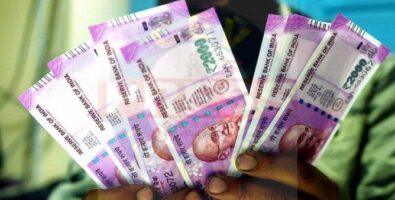Saturday Brain Storming Thought (223) 18/05/2024
HAWALA

Hawala
Hawala is an informal method of transferring money without any physical money actually moving
It is described as a money transfer without money movement
Hawala is used today as an alternative remittance channel that exists outside of traditional banking systems
Key Takeaways of Hawala
1) Hawala is a way to transmit money without any currency actually moving
2) Hawala networks have been used since ancient times
3) Today they are found among expats of developing countries sending remittances home
4) Hawala provides anonymity in its transactions
5) In Hawala, official records aren’t kept and the source of money can’t be tracked
6) Hawala is also finding footing in the world of financial technology, which grants access to money transfers among the unbanked and underbanked populations of the world
7) Some countries like India, have made Havala illegal due to its informal nature and absence of regulation or oversight
Hawala legality in India
Hawala transactions in India are entirely illegal under the Prevention of Money Laundering Act (PMLA) and Foreign Exchange Management Act ( FEMA)
The Reserve Bank of India (RBI), India’s central bank, does not recognise Hawala transactions as it involves unauthorised people
Hawala transactions penalty under FEMA
Article 4 (Section 13 of 15), of the FEMA act, imposed penalty on persons violating the Act
Penalties include
1) Penalty up to thrice the sum involved / upto Rs 2 Lakhs INR (if the amount is not quantifiable)
2) Confiscation of currency, security or any other money or property in respect of which the violation has taken place
3) Civil improvement in case of non-payment of the penalty
Impact of Hawala in India
1) Black Money
As Hawala is an unregulated transaction, it is the most widely used route black money earned in India offshore
2) Corruption
Hawala permits routing black money in and out of India and is widely used to pay bribes
3) Terror Funding
Hawala is mainly used by terrorist organisations to remit money in and out of India
Hawala cases for reference
1) Hasan Ali Khan : The Hawala Kingpin
In March 2007, Hasan Ali’s properties were raided by ED and Income Tax officials based on allegations of Hawala transactions
2) Jain Hawala Dairy case
It was an Indian political and financial scandal involving payments allegedly sent by politicians (black money) through four hawala brokers, namely Jain brothers
3) Mumbai Hawala King arrested for Rs 2000 crore laundering
Mohammad Farooq, one of Mumbai’s biggest Hawala operators was arrested by ED in connection with Rs 2000 crore money laundering case involving his Stelkon Infratel Pvt Ltd and network of 160 shell companies from acone room office in Zaveri Bazar
Measures to curb Hawala
1) Constitution of the Special Investigating Team on Black Money : setup in 2014 to suggest methods to curb and investigate black money cases in the economy
2) Introduction of Black Money (Undisclosed Foreign Income and Assets) and Imposition of Tax Act, 2015
3) Multi Agency group : Setup by the Ministry of Finance in 2016 to probe the Panama leaks involving Indian Nationals
4) Crackdown by closing shell companies
5) Indian Currency notes demonetization :
on 8 November 2016
6) Making Pan numbers mandatory for cash transactions exceeding Rs 50,000 INR in a day
7) Easing in processing of foreign currency transactions and reducing restrictions on convertibility of Indian Rupee by RBI
Difficulties to eliminate Hawala reasons
1) Indian Rupee is not fully convertible
2) Indian Rupee above a certain limit cannot be easily exchanged to a foreign currency
3) Individuals / companies who require foreign currency use Hawala mode in order to buy them
4) Corruption still exists
5) Kickbacks are normally paid through the medium of Hawala transactions
6) Introduction of Bitcoin (cryptocurrency)
7) With the massive changes in the world of technology, digital currencies are being introduced
8) As these are not regulated by the central banks, it is another mode which is leading to increase in Havala transactions
Features of the Hawala system
1) Based on Cash – in and cash – out system
2) Highly successful where large numbers of expatriate workers live
3) Run other business along with Hawala
4) Can be used for illegitimate activities
5) Works on limited customer information
Types of Hawala systems
A) Traditional Hawala System
1) One of the oldest
2) Deals in low value transaction
3) Minimum risk of money laundering
4) Existed due to lack of banking facilities, cultural familiarity
B) Mixed Hawala System
1) They are also used for legitimate purposes but can be used for illegitimate activities
2) This happens in case of tax evasion or Currency control and avoid sanctions
3) Originally they are not a criminal network
C) Criminal Hawala System
1) This Hawala System specifically designed to do illegitimate activities
2) This system is created by criminals to evade taxes and corruptio
3) It is one of the source of money laundering
Persons involved in the Hawala System
1) Money Broker
Trusted person who arranges Street money and makes sure similar value to be arranged at desired destination to the desired person
2) Collector
Collector act as per brokers instructions
Collect money from sender and dispose to desired location
3) Co-ordinator
Acts as an intermediary for money laundering
4) Transmitter
The person who receives and dispatches money to the control of controller
Principles of Hawala transactions
1) Contractual oral / personal trust
2) Oral (amply) defined mandate (the origin of Italian “Avalo” and French and Portuguese “Aval”)
3) Flexible network of Hawaladars, generally chosen according to route
4) Service commission, no profit
5) No document trail (except in Hundi)
6) Personal settlement of arising problems
Advantages of Hawala transactions to users
1) Informal value transmission system (IVTS)
2) Discretion
3) No unexpected fees
4) No continued fees
5) Tax, immigration, money rating, legal avoidance
6) “Mission Impossible” type of task for couriers
7) Possibility of supplementary income for brokers
Legitimate Money Transfer
A system of overseas money transfers using licensed, regulated and supervised financial institutions
Illegitimate Money Transfer
A transfer or remittance of money outside the regulated banking system or legal financial channels, considered to be an informal underground banking transactions
Advantages of Hawala transactions
1) Delivery convenient to towns and villages that have not been served by financial institutions
2) Door – to – door service
3) Simple
4) Quick
5) Safe
6) Favorable exchange rates
7) Low fees
8) Tax advantages (as it leaves no paper trail)
9) Some Hawaladars go to where the expatriates reside or work to collect money
Disadvantages of Hawala transactions
1) Illegality concerns
2) Lack of regulation
3) Limite resources
4) Risk of fraud
5) No consumer protection
Red flags of Hawala Money
1) Minimal documentation
2) Cross – border transactions
3) Lack of regulatory compliance
4) Involvement of high risk
COMPILED BY:-

Er. Avinash Kulkarni
9822011051
Chartered Engineer, Govt Regd Valuer, IBBI Regd Valuer











